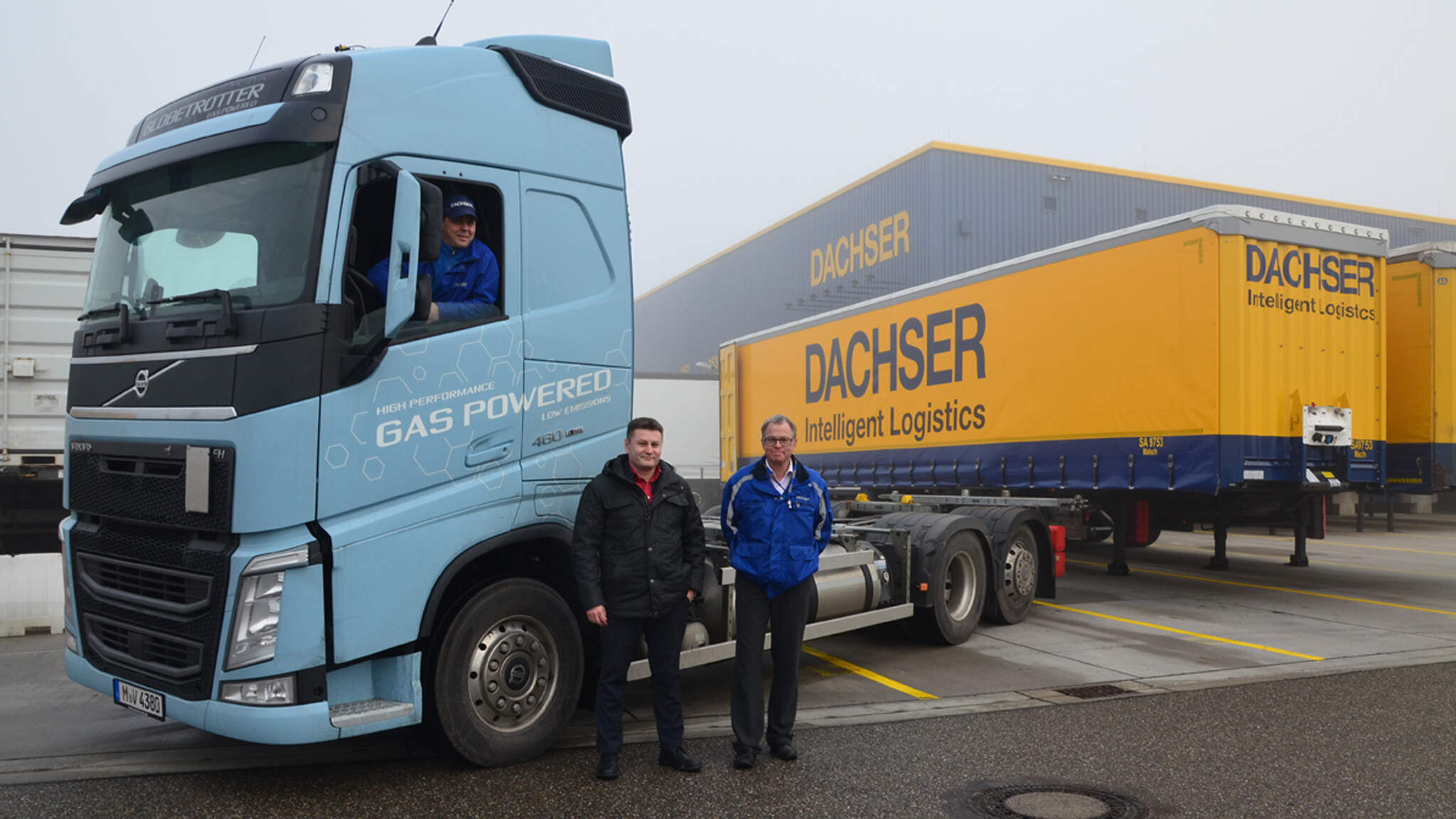DACHSER tests natural-gas-powered trucks under real conditions
Results from Karlsruhe reveal that liquified natural gas (LNG) can offer an alternative to diesel even for long-haul routes. But only provided the filling station network is expanded.

Germany is currently embroiled in a debate over acceptable levels of fine particulates and nitrogen oxides. But the fact that clean air increases the quality of life in cities and promotes good health is impossible to dismiss. That is why several large German cities, including Stuttgart, Berlin, and Bonn, have already taken action: either banning older Euro 1–5 diesel vehicles or announcing such a ban for 2019. At the moment, trucks are exempt from such bans.
Looking to the future, DACHSER must also prepare itself for potential driving bans and increase the number of lower-emission engines in its fleet. DACHSER already operates hybrid and electric trucks in city centers, but Liquified natural gas could also be a promising alternative—as the results of recent tests conducted under real conditions in Karlsruhe show.
As part of its investigation, DACHSER also built a mobile LNG filling station in Karlsruhe. The results were encouraging: after completing test runs covering more than 5,000 kilometers, the LNG-powered truck has proven itself as viable alternative for DACHSER’s fleet. “The drivers were impressed. They didn’t notice any real difference in handling to a diesel truck,” says Thomas Leyerle, who is in charge of the fleet and technical equipment at DACHSER’s logistics center in Karlsruhe. “And the specified range of 1,000 kilometers on one tank is very realistic, as the regular service to Rheine and to Switzerland showed.”
The biggest hurdle: Inadequate filling station network
Some manufacturers are already mass-producing trucks that run on LNG. The fuel offers a number of additional benefits:
- 20% reduction in CO2, 70% reduction in NOx, and 95% reduction in soot particulates
- 90% percent reduction in CO2 values when biogas is used
- Low noise emissions
Despite their high cost, LNG vehicles purchased in Germany currently come with toll exemptions for 2019 and 2020 and a green vehicle rebate of EUR 12,000, making them an attractive alternative to diesel vehicles—which cost somewhere in the region of EUR 40,000—especially for use on long-distance routes.
But despite these advantages, there is still one major problem: The inadequate network of filling stations. As things stand, the number of LNG filling stations in Europe is still limited. However, EU countries and filling station operators plan to vastly expand the network over the coming years.
“DACHSER is currently testing various alternative types of engine. LNG now offers a very promising alternative to the diesel engine—the tests under real operating conditions have proved that much,” explains Christian Schütz, Department Head Technics/Technical Purchase at DACHSER. “But given the limited refueling options, we need to perform detailed analyses and calculations to determine if, and on which routes, it would be viable for us to deploy an LNG vehicle at this time.”
